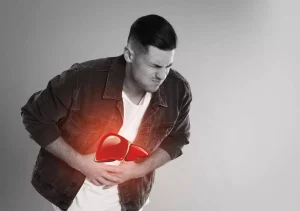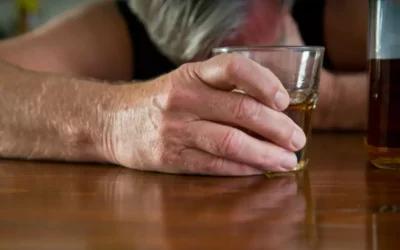
A dose of 14 grams of pure alcohol/ethanol or less was defined as a low dose of alcohol. CUnclear risk of selection bias and attrition bias in more than one study. AUnclear risk of selection bias and attrition bias in more than one study. Refer to Characteristics of included studies and Table 4 for further details regarding these studies. All outcomes of interest in the review (BP and HR) produced continuous data. We calculated and reported mean difference (MD), with corresponding 95% confidence interval (95% CI).
Golan 2017 published data only

Including both of these doses or de‐selecting either one of these doses from Rosito 1999 from Analysis 2.1 and Analysis 2.2 (medium doses of alcohol) resulted in the same statistically significant conclusion. We classified six studies as having low risk of performance bias (Dai 2002; Narkiewicz 2000; Nishiwaki 2017; Potter 1986; Rosito 1999; Van De Borne 1997). In this study, all test drinks were poured into paper cups to achieve blinding of participants. We contacted the author of Rosito 1999 to request additional information regarding the method of blinding used. The study author explained the blinding method in detail in an email, so we classified this study as having low risk of bias. In Barden 2013, treatment allocation was performed by a statistician who was not involved in the trial.

Characteristics of included studies [ordered by study ID]
The dose of alcohol ranged between 0.35 mg/kg and 1.3 g/kg, and alcohol was consumed over five minutes and over one hour and 30 minutes. It is important to note that the dose of alcohol was comparatively higher (≥ 60 g or ≥ 1 g/kg) in nine studies (Bau 2005; Buckman 2015; Hering 2011; Narkiewicz 2000; Rosito 1999; Rossinen 1997; Stott 1987; Van De Borne 1997; Zeichner 1985). We (ST and CT) independently screened the citations found through the database search using Covidence software (Covidence). We excluded articles if the citation seemed completely irrelevant or was identified as a review or observational study after the title and abstract were read. For remaining studies, we (ST and CT) retrieved full‐text articles for further assessment.
Banini 2006 published data only

That fourth drink at the bar may feel like it’s relaxing you, but it’s actually affecting your body differently than you might think. This is especially true when you engage in binge drinking (that’s defined as four or more drinks within two hours for women and people assigned female at birth, and five or more drinks within two hours for men and people assigned male at birth). Your age and other risk factors linked to heart and blood pressure health will ultimately aid your decision with your doctor about drinking. But don’t expect any “all clears” for anything beyond light-moderate drinking. But if you’re younger than 50, particularly if you’re a woman, it’s not so clear.
So, your system prioritizes getting rid of alcohol before it can turn its attention to its other work. Let’s face it, a hangover in your mid-40s doesn’t feel the same as one in your early 20s. This is because your age plays a factor in how well you tolerate alcohol. While some people develop a tolerance to alcohol over time, this isn’t true for everyone — and this ability doesn’t last forever, Dr. Cho notes. It’s also important to know that the ways in which alcohol affects your heart will vary from person to person, depending on your age and other conditions you may have. However, if you want to partake in alcohol consumption, the Dietary Guidelines for Americans 2020–2025 and the National Institute on Alcohol Abuse and Alcoholism (NIAAA) provide the following guidelines.
- Since the kidneys excrete a tenth of ingested alcohol, toxicity in these organs is expected, which could enhance inflammation and renal damage in hypertensive patients.
- The researchers found that the alcohol-drinking subjects (particularly those who were insulin sensitive) had higher insulin levels and a slower rise in glucose levels after a low-carb meal.
- The statements and conclusions in each manuscript are solely those of the study authors and do not necessarily reflect the Association’s policy or position.
- High‐dose alcohol consumption increased HR by approximately 6 bpm in participants, and the effect lasted up to 12 hours.
Cutler 1991 published data only
We interpreted only funnel plots that were constructed based on studies reporting outcomes under medium dose and high dose of alcohol versus placebo comparisons. We used GRADEpro software to construct a ‘Summary of findings’ table to compare outcomes including change in SBP and DBP how does alcohol affect blood pressure and HR (GRADEpro 2014). In addition, we included illustrative risks to present findings for the most important outcome (change in systolic blood pressure). This may be due to alcohol affecting the chemicals in the body that control blood vessel constriction and fluid levels.

When you are dehydrated, the volume of water in your blood goes down, concentrating sodium levels. The increase in sodium, in turn, causes your body to secrete a hormone called vasopressin that prevents the kidneys from releasing water in urine, thereby preventing water loss. Dehydration occurs when the body loses too much water that it needs to function normally. One of the main reasons for this is not drinking enough water or not replenishing water lost to sweat, excessive urination, vomiting, or diarrhea. Drinking water can help normalize your blood pressure but doesn’t necessarily lower your blood pressure unless you are dehydrated.

Sierksma 2002 published data only
- Moderate‐certainty evidence shows that SBP and DBP rise between 13 and 24 hours after alcohol ingestion.
- ”We found participants with higher starting blood pressure readings, had a stronger link between alcohol intake and blood pressure changes over time.
- This article explains how dehydration contributes to hypertension and how drinking water can help maintain or even lower your blood pressure.
Keeping well hydrated can help normalize your blood pressure if you’ve been diagnosed with hypertension or are prehypertensive. To estimate your individual needs, speak with your healthcare provider—particularly if you have or are at risk of hypertension. At the same time, vasopressin causes the constriction (narrowing) of blood vessels, thereby increasing blood pressure, sometimes precipitously. This is not to suggest that dehydration “causes” hypertension, but it certainly has the potential to contribute to a disease that affects one in three people in the United States.
- But there’s plenty of research to back up the notion that alcohol does lead to weight gain in general.
- Brain aneurysm treatment depends on the size, location, and the presence of risk factors of a future rupture.
- In addition, alcohol may attenuate ischemia–reperfusion injury by activating protein kinase C epsilon (PKCɛ) (Walker et al. 2013).